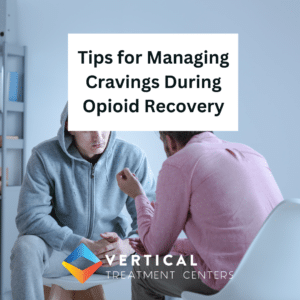
Tips for Managing Cravings During Opioid Recovery
Cravings are a common and challenging aspect of opioid addiction recovery. Managing cravings effectively is essential for maintaining sobriety and preventing relapse. In this blog post, we will discuss valuable tips and strategies that can help individuals in opioid recovery navigate and overcome cravings successfully.
Understanding Cravings: The Science Behind It
Before diving into the tips, it’s essential to understand the nature of cravings. Cravings are intense desires or urges for opioids that can be triggered by various factors, such as stress, environmental cues, or emotional states. These cravings can be powerful and overwhelming, but it’s important to remember that they are temporary and manageable.
Build a Strong Support System
Having a reliable support system is crucial when managing cravings. Surround yourself with individuals who understand your journey and can provide encouragement during challenging times. This can include friends, family, support groups, or a sponsor from a 12-step program. Reach out to your support system when cravings arise, as talking about your feelings can help alleviate their intensity.
Develop Coping Strategies
Identify and develop healthy coping strategies that work for you. Engage in activities that distract and redirect your mind away from cravings. Examples may include exercising, practicing mindfulness or meditation, listening to music, or participating in hobbies that bring you joy. Experiment with different strategies to find what works best for you and incorporate them into your daily routine.
Create a Relapse Prevention Plan
A relapse prevention plan is an essential tool for managing cravings and preventing relapse. Work with a counselor or therapist to develop a personalized plan that includes specific strategies for handling cravings. This plan may include techniques like deep breathing exercises, positive self-talk, or engaging in alternative activities when cravings strike. Having a plan in place will increase your confidence in managing cravings effectively.
Practice Self-Care
Prioritize self-care as a vital aspect of managing cravings. Taking care of your physical, mental, and emotional well-being can help reduce the frequency and intensity of cravings. Make sure to get enough sleep, maintain a balanced diet, and engage in activities that bring you joy and relaxation. Self-care practices like regular exercise and practicing mindfulness or meditation can also help alleviate stress and improve overall well-being.
Attend Support Groups or Therapy Sessions
Support groups or therapy sessions provide a safe space to share struggles, gain insights from others facing similar challenges, and learn valuable tools for managing cravings. These platforms offer a sense of community and reassurance that you are not alone in your recovery journey. Consider attending support groups or therapy sessions regularly to stay connected and receive ongoing support.
Conclusion
Managing cravings during opioid recovery is a continuous process that requires patience, perseverance, and a personalized approach. By implementing the tips mentioned above and finding the strategies that work best for you, you can effectively navigate cravings and maintain your sobriety. Remember, seeking support, developing coping strategies, and prioritizing self-care are essential components of managing cravings successfully.